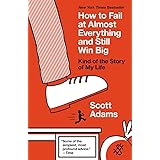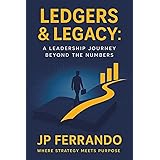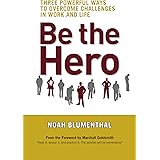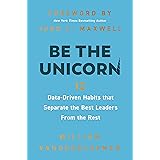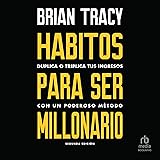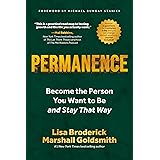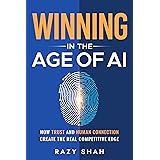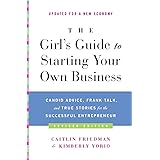A staggering 85% of professionals believe continuous learning is crucial for career success in today’s dynamic global economy. Navigating this landscape requires foresight and robust strategies. Above, you’ll find invaluable insights from Jamie Dimon, Chairman and CEO of JPMorgan Chase, offering profound career advice for aspiring leaders. Dimon’s perspective underscores foundational principles for enduring professional growth.
His guidance transcends typical career development tropes. It provides a blueprint for resilience and leadership in a fast-changing business environment. This article delves deeper into Jamie Dimon’s core philosophies. We explore how these principles drive sustained career growth. We integrate expert analysis and practical applications.
Mastering Career Growth: Jamie Dimon’s Core Tenets
Jamie Dimon’s career advice begins with an unequivocal emphasis on effort. Success rarely materializes without diligent application. Approximately 70% of high-achievers attribute their accomplishments to persistent hard work over innate talent. This dedication forms the bedrock of professional achievement.
The notion of “get rich quick” is often a fallacy. Dimon himself notes its rarity in genuine business contexts. True wealth and significant career advancement compound over time. This requires sustained effort and strategic perseverance. Cultivating a strong work ethic is not merely about hours logged. It encompasses intentional, focused engagement with tasks and responsibilities.
Moreover, hard work in the modern economy involves intelligent effort. It means prioritizing tasks effectively. It also involves learning from failures. This iterative process builds competence and resilience. Research suggests that deliberate practice, a form of focused hard work, is more impactful than general effort. It drives skill mastery and innovation.
The Imperative of Lifelong Learning and Adaptability
Continuous learning stands as a non-negotiable component of professional longevity. Dimon exemplifies this, reading “four or five newspapers every morning.” This habit highlights a commitment to broad knowledge acquisition. Such dedication keeps leaders abreast of global trends. It informs strategic decision-making.
The business landscape evolves at an exponential rate. Digital transformation, AI integration, and shifting market dynamics demand constant skill acquisition. Firms investing in continuous learning report 50% higher productivity. Learning encompasses formal education and informal observation. It includes insights gained from clients, competitors, and industry peers. Even minor observations can spark significant organizational improvements. Dimon cites the iPhone’s development as an example. Its innovation stemmed from “a lot, a lot of little things” like 3G, glass, semiconductors, and batteries, not a single ‘aha’ moment. This highlights cumulative knowledge application.
Embracing a learning mindset fosters adaptability. Professionals must be willing to pivot and acquire new competencies. This ensures continued relevance in their fields. The World Economic Forum predicts that over half of all employees will require significant reskilling by 2025. This underscores the urgency of proactive learning strategies.
Cultivating Authentic Leadership Through Respect
Treating people with respect forms the ethical core of Jamie Dimon’s leadership philosophy. This principle extends beyond basic courtesy. It encompasses humility, openness, fairness, and authenticity. These attributes forge strong, trusting professional relationships. A recent study indicated that 79% of employees would leave a job due to a lack of appreciation from their employer.
Humility allows leaders to acknowledge their limitations. It fosters a culture of collaborative problem-solving. Openness encourages diverse perspectives. It drives innovation and reduces groupthink. Fairness ensures equitable treatment. This builds trust and bolsters team morale. Authenticity means acting in alignment with one’s values. This cultivates credibility and inspires loyalty. These qualities are far more impactful than mere intelligence or charisma. People prefer to work for leaders they trust and respect. They seek leaders who genuinely care about client, country, and team success. This approach fosters a high-performance culture.
Companies with high trust cultures exhibit 50% higher employee engagement. They report significantly lower turnover rates. These leadership virtues create an environment where individuals feel valued. They are empowered to contribute their best work. This translates directly into organizational success and sustainable growth.
Navigating Career Paths with Flexibility and Self-Care
Flexibility in career trajectory is another key piece of Jamie Dimon’s advice. It suggests prioritizing personal growth and alignment over immediate income. Sometimes, a job with less initial pay offers greater long-term fulfillment. Such roles may provide invaluable experience or better cultural fit. Data indicates that job satisfaction directly correlates with long-term career success. Workers prioritizing fit often experience enhanced well-being and productivity.
The modern professional life often demands multiple career transitions. Professionals should be prepared to undertake “a bunch of different things” over their lifetime. This requires an agile mindset. It also necessitates a willingness to embrace new challenges. This adaptability can lead to unforeseen opportunities. It broadens one’s skill set significantly. Organizations increasingly value candidates with diverse experiences.
Crucially, Dimon emphasizes personal well-being. Individuals must care for their “mind, body, spirit, soul, friends, and family.” This holistic approach is not optional; it is fundamental to sustained productivity. Studies show that employees with high well-being are 13% more productive. Neglecting personal life leads to burnout and reduced effectiveness. It is a personal responsibility to manage these aspects. Companies can provide opportunities and support. However, ultimately, individuals must take ownership of their health and personal life. Dimon schedules exercise time even during international travel. This illustrates a practical commitment to well-being integration. Achieving this balance often requires setting clear boundaries. It means making intentional choices about time allocation. It’s about quality *and* quantity when it comes to personal relationships. This ensures a sustainable, fulfilling career journey.
The Pillars of Effective Management and Leadership
Effective management encompasses precise execution and rigorous discipline. Dimon lists key components: “get it done, follow up, discipline, planning, analysis, facts, facts, facts.” These are the operational bedrock of any successful enterprise. Strong management relies on data-driven decisions. It thrives on efficient processes. It also demands clear accountability. Eliminating bureaucracy streamlines operations. It empowers teams to act quickly. Furthermore, getting the “right people in the room” is critical. This ensures diverse expertise contributes to problem-solving. Organizations with robust management practices demonstrate 20% higher profitability. This highlights their direct impact on financial performance.
However, true leadership extends beyond mere managerial competence. It cultivates an environment where people *want* to work. Trust is paramount. Leaders must demonstrate genuine care for stakeholders. This includes clients, employees, and the broader community. Selfishness or credit-grabbing behaviors erode trust. They poison organizational culture. The difference between a good manager and a great leader lies in this ability. Great leaders inspire loyalty and commitment. They foster a sense of shared purpose. They lead with humility, openness, fairness, and authenticity. These are not soft skills; they are strategic imperatives. Leadership drives employee engagement. It reduces turnover. It fuels innovation. It ensures the long-term vitality of any organization. Ultimately, effective leadership creates a legacy. It ensures sustained success for the team and the enterprise.
Drilling Down with Dimon: Your Career Questions Answered
Who is Jamie Dimon?
Jamie Dimon is the Chairman and CEO of JPMorgan Chase, a major financial services company. He provides important career advice for professionals and aspiring leaders.
What is the most important foundation for career success, according to Jamie Dimon?
Jamie Dimon believes that persistent hard work is the bedrock of professional achievement. He emphasizes that true career advancement comes from sustained effort, not quick shortcuts.
Why does Jamie Dimon stress the importance of lifelong learning?
He stresses lifelong learning because the business world is constantly changing with new technologies and market dynamics. Continuous learning helps professionals stay relevant, acquire new skills, and adapt to evolving challenges.
What qualities does Jamie Dimon recommend for authentic leadership?
For authentic leadership, Jamie Dimon recommends treating people with respect, humility, openness, fairness, and authenticity. These qualities help build trust and strong professional relationships.
What advice does Jamie Dimon give about personal well-being and career paths?
Jamie Dimon advises professionals to be flexible in their career paths and to prioritize personal growth and well-being. He emphasizes taking care of your ‘mind, body, spirit, soul, friends, and family’ for sustained productivity and a fulfilling career.


